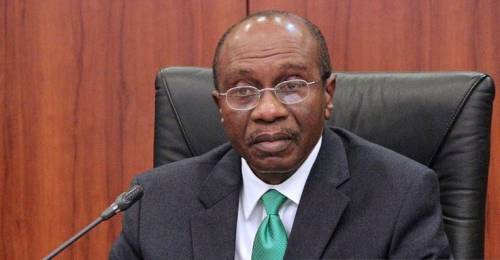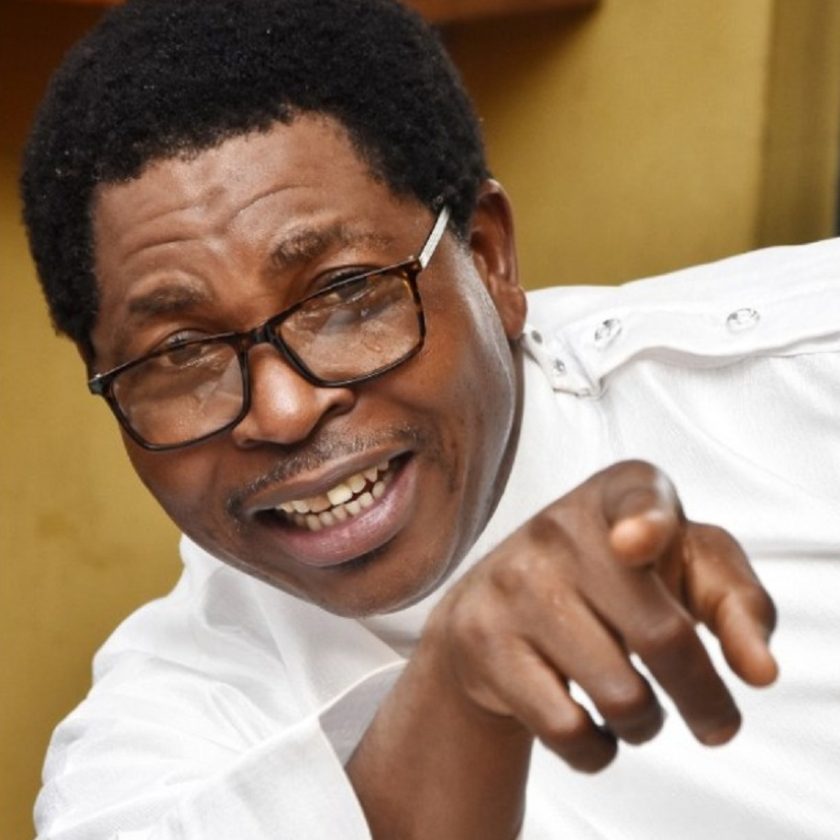That the Central Bank of Nigeria has set a new withdrawal limit is a stale news. What is perhaps news is the reason behind the new directive.
NATIONAL WAVES gathered the apex bank had been perfecting plans to greatly restrict the use of cash in the Nigerian economy, it swiftly introduced the directive yesterday to foil a move by certain individuals to withdraw a whopping N45 billion from the nation’s banking system.
It was learnt that certain individuals, who are based in Bayelsa State, were making frantic efforts to withdraw the said sum of money and were shopping for highly placed bank officials at the level of bank managing director to help them with the money laundering effort.
They were, however, outsmarted by the Godwin Emefiele-led CBN management team, which quickly announced the policy yesterday, thereby forestalling any act of money laundering which could jeopardise the nation’s economy.
CBN governor, Godwin Emefiele had prior to announcing the redesigning of the naira mentioned plans to ensure that the Nigerian economy goes 100 percent cashless. In canvassing for the redesigning of the N200, N500 and N1,000 notes, he had also mentioned that more of the lower notes will be in circulation while the higher denomination notes will be used mostly as a store of value.
True to this, the apex bank in a circular dated December 6, 2022 and signed by the CBN Director, Banking Supervision, Haruna Mustafa, stated that effective January 9, 2023, only N200 notes and below will be loaded by banks into the Automated Teller Machines.
According to the circular, which was issued to all deposit money banks, payment service banks, microfinance banks and primary mortgage banks in the country, individual and corporate organisations’ withdrawal limits are not to exceed N100,000 and N500,000 per week.
Withdrawals above these limits, the circular stated, will attract processing fees of five per cent for individuals and 10 per cent for corporate organisations.
“Third party cheques above N50,000 shall not be eligible for payment over the counter, while extant limits of N10,000,000 on clearing cheques still subsist.”
The circular also stated that the maximum cash withdrawal per week via Automated Teller Machine (ATM) shall be N100,000 subject to a maximum of N20,000 cash withdrawal per day as only denominations of N200 and below shall be loaded into the ATMs. Likewise, the maximum cash withdrawal via point of sale (PoS) terminal was fixed at N20,000 daily.
“In compelling circumstances, not exceeding once a month, where cash withdrawals above the prescribed limits is required for legitimate purposes, such cash withdrawals shall not exceed N5 million and N10 million for individuals and corporate organisations, respectively, and shall be subject to the referenced processing fees in (1) above, in addition to enhanced due diligence and further information requirements.”
To be eligible for the special withdrawals above the stipulated limit, the CBN said individuals and corporate organisations will have to upload, on a CBN portal created for the purpose, valid means of identification of the payee such as National ID, International Passport, Driver’s License, and Bank Verification Number (BVN) of the payee.
Also, to be made available to the CBN will be the notarised customer declaration of the purpose for the cash withdrawal, senior management approval for the withdrawal by the managing director of the drawee, where applicable, and approval in writing by the MD/CEO of the bank authorising the withdrawal.
The CBN also directed that banks’ “monthly returns on cash withdrawal transactions above the specified limits should be rendered to the Banking Supervision Department.”
Banks are also to ensure customer due diligence and suspicious transaction reporting in all circumstances, while customers should be encouraged to use alternative channels (internet banking, mobile banking apps, USSD, cards/POS, eNaira, etc.) to conduct their banking transactions,”
Aiding and abetting the circumvention of this policy will attract severe sanctions, it said.





